Learners accessing this standard will be working as a leader in the context of a small project/sub-project involving few resources and having a limited impact on stakeholders and the environment or working as a contributing team member on a medium to large project when not a leader.
Learners accessing this standard will either lead small projects or sub-projects with limited resources and impact or contribute as team members in medium to large projects. As leaders, they will manage projects with narrow scopes and modest stakeholder impact, while as team members, they will support and collaborate on larger projects under the guidance of project leaders. This standard develops skills for both leadership and collaborative roles in project management.
Course Content
- The necessity and value of a schedule in controlling project work are explained with examples
- The process of controlling the execution of the project schedule is explained with examples
- The importance of controlling changes to the duration of activities is described and explained with examples
- The usage of a baseline in controlling work on a project is explained with examples
- Information pertaining to progress against a planned schedule is collected, and records are updated correctly
- Actual progress versus planned progress is compared and recorded and reported in the agreed format
- Variances are identified, documented, and communicated in the agreed format
- Potential corrective actions are identified and suggested to higher authority in accordance with procedures
- Lessons learned are documented and communicated to relevant parties using agreed procedures
- Approved changes to schedules are documented, and associated schedules are updated according to procedures
- Approved changes are communicated to relevant parties (stakeholders) in the agreed format and time frame
- Non-accredited: Short course only
- Duration: 1h 00m
- Delivery: Classroom/Online/Blended
- Access Period: 12 Months


